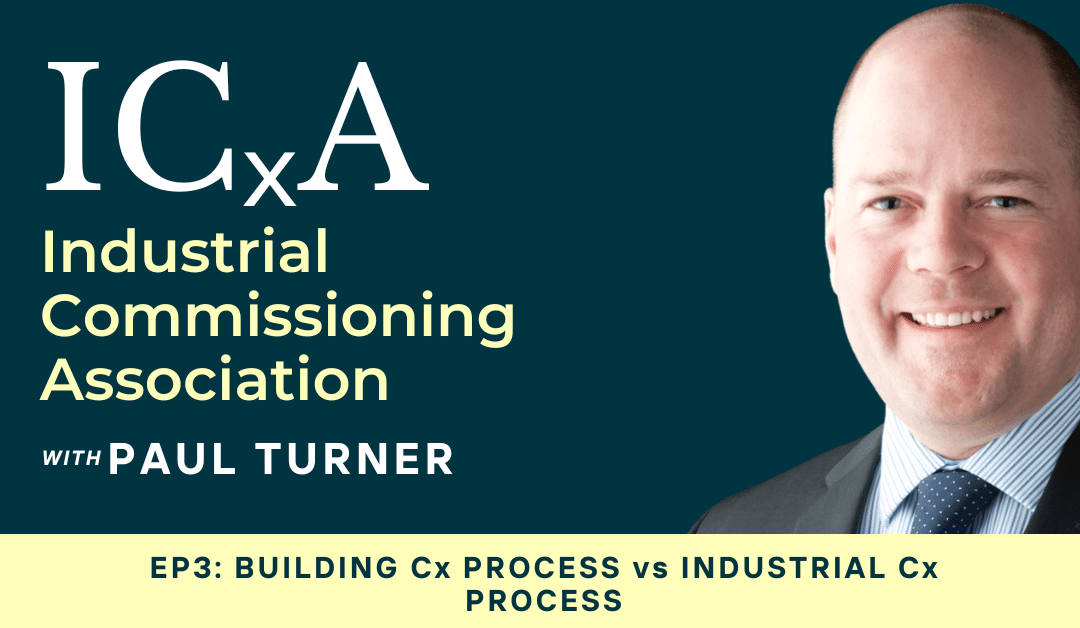We will review the differences between building commissioning processes and industrial commissioning processes. These two processes are very similar, but there are distinct differences that you need to be aware of.
Support for Building Commissioning
Historically, there has been significant support for building commissioning, with numerous associations, certifications, and resources available to support the industry. These organizations are doing great work, and it makes sense that there’s widespread support for building commissioning. This is the most common type of commissioning you’ll encounter. Buildings have HVAC, fire protection, and security systems that all require commissioning.
When you walk down any city block, you’ll see far more buildings than you will oil platforms or power substations. It’s no surprise, then, that the building commissioning industry receives much more attention.
Renewable energy systems, which are increasingly common, are another area. Solar, wind, biogas, and hydrogen systems—especially blue and green hydrogen projects—are great examples of industrial energy systems where ICxA standards apply.
Industrial energy systems are the critical infrastructure working behind the scenes to power our economies and societies. These are the types of industrial energy systems that ICxA is committed to supporting through commissioning and procurement standards, membership resources, seminars, training, and certification for the industrial commissioning industry.
Now, what is an industrial plant process? This would include water and wastewater treatment facilities, chemical manufacturing plants, fertilizer manufacturing plants, desalinization plants, refinery systems, and mining facilities with electrical and mechanical equipment involved in battery production and recycling. These processes are quite in demand, especially for the electric vehicle market and battery production and recycling.
The Importance of Industrial Commissioning
However, there are many industrial megaprojects being built behind the scenes where commissioning is just as important, if not more so. These projects include water treatment plants, energy production facilities, and manufacturing plants. Commissioning in these industrial contexts is far more complex.
While there has been ample support for building commissioning, there has historically been a lack of resources and associations for industrial projects. That’s why we created the Industrial Commissioning Association—to help industrial plant processes and energy systems succeed through the provision of resources, standards, and other specialized support.
Let’s explore the four main differences between building commissioning and industrial plant process commissioning.
- Subsystems vs. Systems
In building commissioning, many subsystems are largely standalone. For example, your HVAC system might interact minimally with other systems, but it generally operates independently. The same can be said for your sprinkler system, lighting control, and life safety systems.
In contrast, industrial plant process commissioning operates in the opposite way. Everything must work together—electrical, mechanical, and automation systems—all combining to function as one cohesive process to achieve the intended project outcome.
Take a water treatment plant, for example. The water entering the plant requires electrical, mechanical, and automation systems to manage pipes, pumps, valves, and flow meters, all working together to produce potable water. While there may be building systems involved in industrial plants (such as HVAC or security), these are referred to as the balance of plant. The balance of plant is critical but ultimately supports the main industrial process system, such as water treatment.
- Contract Structures
Contract structures in industrial commissioning are significantly more complex than those in building commissioning. Industrial plant processes require detailed contracts that outline the transition from construction to commissioning. These transitions apply not only to electrical, mechanical, and automation components but also to the handover at both the subsystem and system levels.
For these complex projects, procurement packages must be carefully prepared, and contractors need the necessary expertise and skill sets for successful commissioning. The contract structure is a crucial component in ensuring that the project runs smoothly through its various phases.
- Interdependencies
We briefly touched on interdependencies when discussing subsystems and systems. In industrial plant commissioning, everything is interdependent. For example, if an air compressor system is part of a plant process, the vendor may be responsible for starting that compressor, but the commissioning team must ensure that it integrates with the larger plant process.
Similarly, a chiller or heat exchanger may be started by a vendor, but these systems need to interface with others to form a fully functional process. While vendor startups are essential, the overall responsibility lies with the commissioning team to make sure that all systems are interconnected and functioning as a single plant process.
- Operational Element
Perhaps the most significant difference between building and industrial commissioning is the operational element. Both require maintenance to ensure functionality, but industrial plants often involve a much larger operational aspect.
Many industrial plants have onsite operators in central control rooms that manage equipment around the clock. These operators need to be well-prepared with documentation, training, and support to ensure smooth handover from the commissioning team to the operations team. The goal is to have everything ready so that the plant can operate smoothly from day one of commercial service.
Conclusion
These are the four primary differences between building commissioning and industrial plant process commissioning:
- Subsystems vs. Systems
- Contract Structures
- Interdependencies
- Operational Element
There are additional differences, but these are the most critical to understand. At the Industrial Commissioning Association, we offer numerous resources to help you with your industrial commissioning needs. We hope you join us in the members’ area, and please consider subscribing to our podcast for more actionable insights.


Recent Comments